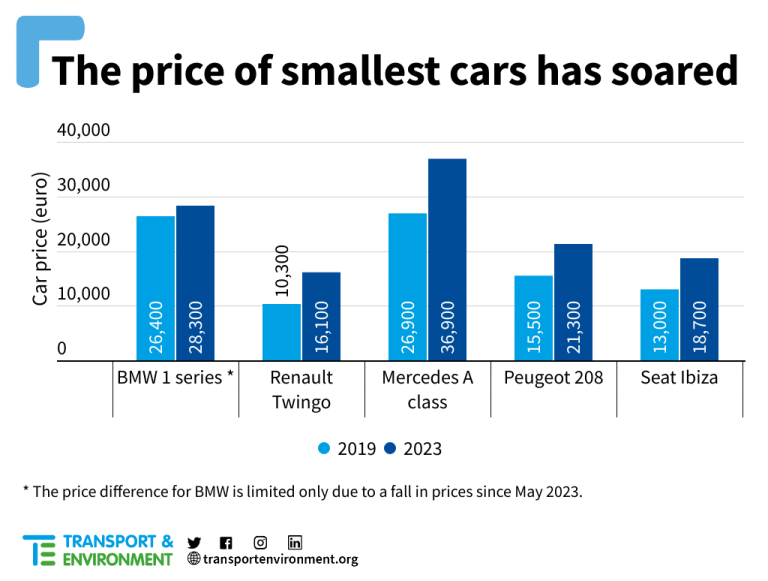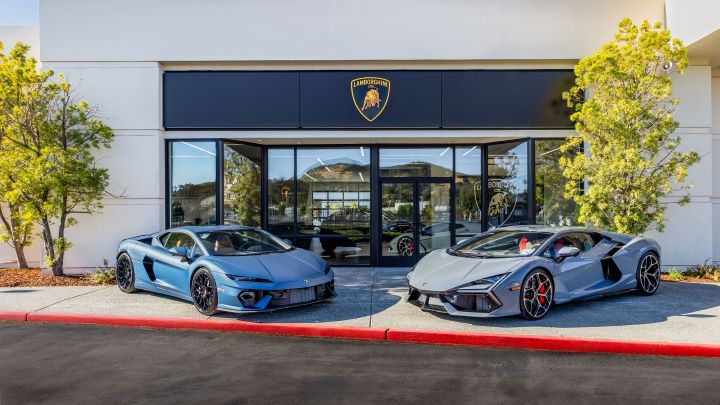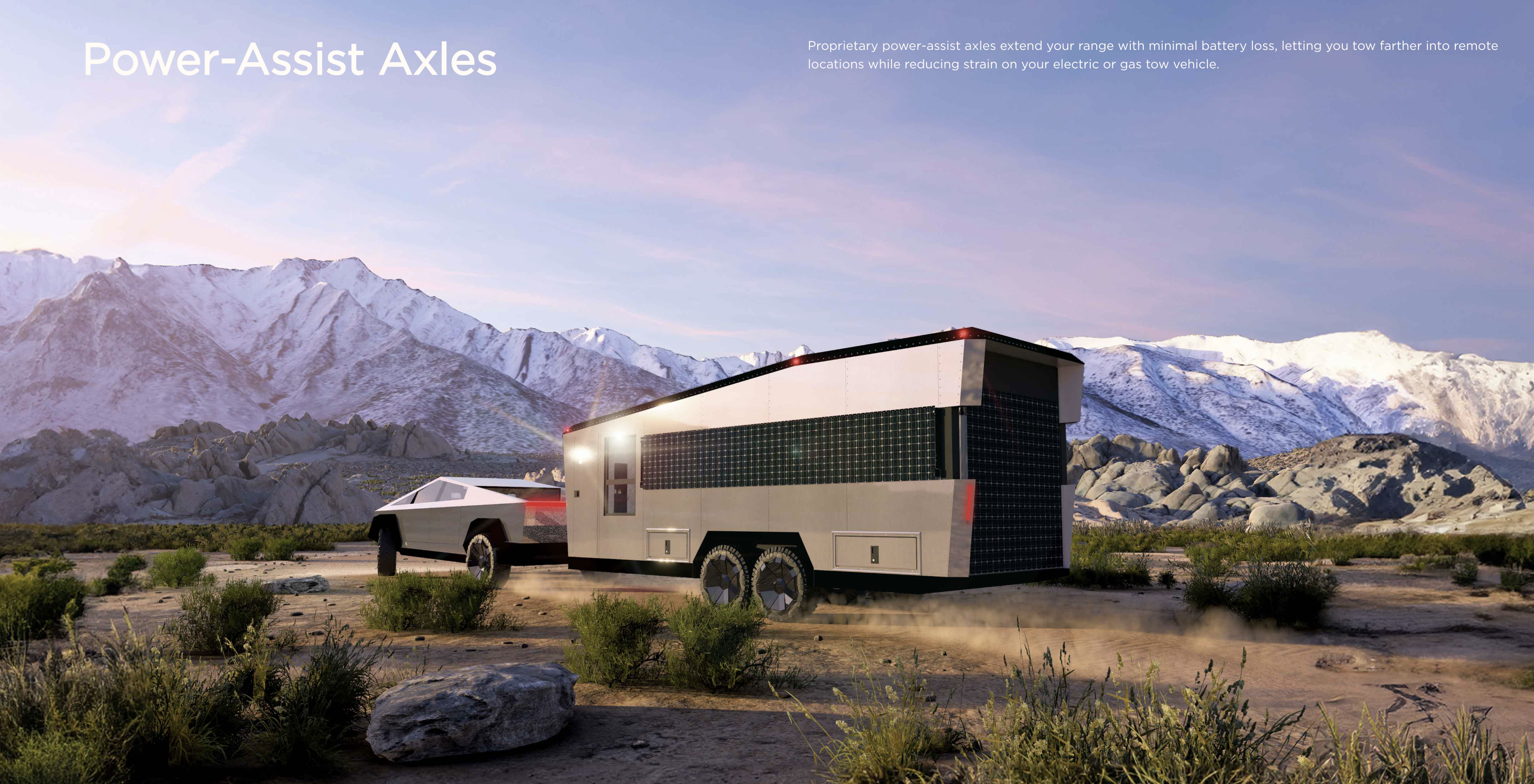Sign up for daily news updates from CleanTechnica on email. Or follow us on Google News!
Carmakers have raised prices by thousands, but claim Euro 7 is unaffordable .
A new analysis shows that even after the Dieselgate scandal, Europe’s carmakers prioritize profit ahead of people’s health.
In November 2022, the European Commission proposed a new law, known as Euro 7, reducing allowable pollution from cars, vans, buses, and trucks. The proposal would save thousands of lives cut short by air pollution and improve air quality for all European citizens. Yet, the automotive industry has been intent on derailing any meaningful progress on reducing pollution from cars and trucks, criticizing even the severely watered down Euro 7 general approach of the Council, and the weak position of the European Parliament’s Environmental Committee. One of the central arguments of carmakers against Euro 7 is that of affordability. Carmakers argue that Euro 7 is too expensive for both them and consumers, and will result in large price hikes which will make cars, especially smaller, cheaper models, unaffordable.
Yet, price data from Europe’s five biggest carmakers (BMW, Mercedes, Stellantis, Renault, and Volkswagen) shows that they have raised the prices of their cheapest models by up to 41% since 2019, almost double the average EU cumulative inflation (21%). Notably, the price of small, affordable models, the Peugeot 208, Seat Ibiza and Renault Twingo, which previously retailed at (€10,300-€15,500) have increased by almost €6,000. The more premium but still small Mercedes A and B class models increased in price by over €10,000. The price increase of 7% of the BMW Series 1 and 2 was more limited only due to a sharp reduction in pricing since May 2023.
Rather than the rise being due to increased costs linked to high inflation and the war in Ukraine, carmakers have used the opportunity of an inflationary market to raise prices beyond inflation to substantially bolster their own profits while making cars less affordable for consumers. J.P. Morgan estimates that only half of the increase in new vehicle prices is due to higher input costs such as from raw materials. Since Europe’s five biggest carmakers more than doubled their profits from €28 billion in 2019 to €64 billion in 2022 as shown in T&E’s earlier publication, this means that at least part of the rest of the price increase has directly contributed to the carmaker’s record profits. These have allowed them to announce a record payout of €27 billion to shareholders this year.
Most interestingly, prices of BMW’s and Stellantis’s entry level cars have fallen by €1,300-€3,830 since they peaked earlier this year, likely due to a larger supply of new cars on the EU market driving greater price competition between carmakers. It also suggests that a substantial share of the higher price seen in May was due to carmakers pricing cars purely to boost profits. This is supported by statements from Stellantis’ CEO forecasting that carmakers will have to go back to more conventional pricing and profit models (i.e. one based on higher volumes and lower profit margins as seen prior to the Covid-19 crisis rather than the high profit, low volume model seen over the last few years).
The large price increases seen for cars in recent years, even for entry level models, coupled with carmakers’ extraordinarily high profits, raises an important question. Why are carmakers prepared to raise prices by thousands of euros, making cars significantly less affordable for European consumers, to make record profits, but fight tooth and nail against life saving anti-pollution technologies costing only €200 per car? This shows that even after the dieselgate scandal Europe’s carmakers prioritise profit ahead of people’s health.
It is up to European policymakers to ensure that the health of European citizens is protected. It is imperative that in the upcoming vote on the Euro 7 pollution standards, Members of the European Parliament support a more robust Euro 7 than the weak position agreed within the Parliament’s Environment Committee, which weakens key aspects of the Commission’s Euro 7 proposal including on emission limits and testing, which are critical for reducing the large amount of toxic pollution still produced by new cars today. This is Europe’s last chance to cut toxic pollution from internal combustion engines, MEPs should not squander it.
Republished from Transport & Environment.
Related Story: Carmakers Are Hiking The Prices of Small Cars Far Above Inflation
Europe’s five biggest carmakers have raised the prices of their cheapest models by an average of 41% since 2019, new analysis of price data shows. Almost double the cumulative rate of inflation during this period. The price of a Peugeot 208, Seat Ibiza and Renault Twingo, has increased by almost €6,000 – a rise of 37-56%; the more premium Mercedes A and B class models increased in price by over €10,000 (up 38% and 37% respectively). Prices have risen far above levels of inflation or the cost of raw materials and other components.
The price hikes saw carmakers make record profits of €64 billion last year, and they issued record share dividends of €27 billion this year. Transport & Environment (T&E), which analysed the data, said this comes at a time when carmakers have fought to derail new anti-pollution measures – the Euro 7 standard – costing €200 per car, claiming it is too expensive for both them and consumers, and will result in unaffordable price hikes.
Anna Krajinska, vehicle emissions and air quality manager at T&E, said: “In some cases, carmakers have raised the prices of their cheapest models by more than half since 2019. That’s a whopping €6,000 extra for a Peugeot 208 or Seat Ibiza. This is way above inflation and other costs, allowing carmakers to make record profits last year at the expense of consumers. Yet they have fought tooth and nail against life saving anti-pollution technologies costing only €200 per car. It’s proof that profit will always come before people for Europe’s carmakers.”
The European Commission proposed a new law, the Euro 7, in 2022 that would reduce pollution from cars, vans, buses and trucks. The proposal would save thousands of lives cut short by air pollution and improve air quality for all European citizens. Yet, the automotive industry launched a relentless lobbying effort to kill off Euro 7. One of the central arguments they make is that it’s too expensive, and will make cars—especially smaller, cheaper models—unaffordable for consumers.
While carmakers have systematically increased the price of their cars, the European Council and the Parliament’s Environment Committee have bought the industry narrative, watering down the European Commission’s original, relatively weak, Euro 7 proposals. Without action to reverse this, 100 million more highly polluting cars will be sold before 2035 and driven on Europe’s roads for decades to come.
Anna Krajinska said: “Carmakers have used the opportunity of an inflationary market to raise prices for consumers beyond inflation to substantially bolster their own profits. At the same time they ran a campaign against cheap and readily available technology that would improve air quality for all. The European Parliament has one final chance to end this gross injustice. It must act in the interests of all Europeans, not just the auto industry.”
The European Parliament will meet in Plenary on 8th 8 to vote on its final position on Euro 7 before entering into trilogue negotiations with the European Commission and the European Council. This will be the last chance to increase its ambition for both the Euro 7 and public health in Europe.
Republished from Transport & Environment.
Have a tip for CleanTechnica? Want to advertise? Want to suggest a guest for our CleanTech Talk podcast? Contact us here.
EV Obsession Daily!
I don’t like paywalls. You don’t like paywalls. Who likes paywalls? Here at CleanTechnica, we implemented a limited paywall for a while, but it always felt wrong — and it was always tough to decide what we should put behind there. In theory, your most exclusive and best content goes behind a paywall. But then fewer people read it!! So, we’ve decided to completely nix paywalls here at CleanTechnica. But…
Thank you!
Community Solar Benefits & Growth
CleanTechnica uses affiliate links. See our policy here.





